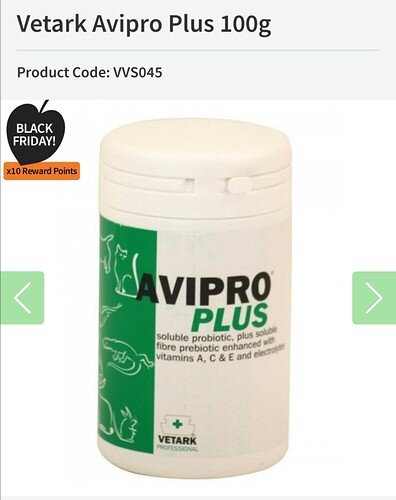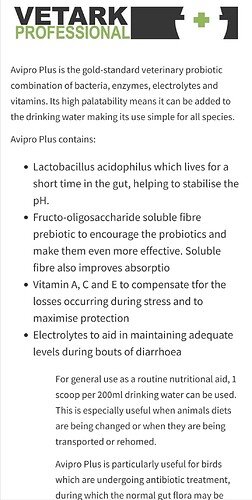If you actually read what i stated, the vet only recommended temps of 93. My actual temps are at 88. I lower it 5 degrees and it will put the hotspot for the entire rack at 83 and will be too cold for him and the rest of the babies i am growing out in the rack that are thriving. I am not doing that.
I read it I realize your temps were 88. 83 is absolutely not to low for hatchlings. I’ve have kept babies at 88 and 83 and can tell you my personal experiences have shown that hatchlings do much better at 83.
Here is the other thread: Intestinal Blockage?
It could be different but either way you want to take him to the vet.
Ask for “any ideas” but won’t take said ideas… interesting.
when you take pics try and get the underside showing the belly. But it Sounds like it might have a build up on bacteria growing in the gut, which will only be taken care of with anitbiotics.
I would agree this could be probable but the OP stated there vet suggested to continue “assist” feeding. And the vet would have to prescribe the antibiotic.
yep read that as well, but maybe the op needs to stop phone diagnosis and actually take to the vet to be seen.
It might sound mental but have you considered using a prebiotic/probiotic?
It might have imbalanced or poor gut flora that’s hampering proper digestion and low appetite.
I’ve used a powdered one marketed for birds, on pinkies that I was feeding to a Thayeri kingsnake which was lagging behind and had a poor appetite/feeding response. I’ve got no proof that it was definitely the pre/probiotic that helped, but it’s appetite has definitely improved. It went from taking 20-30mins of tease feeding to get it angry enough to eat a pink (and still occasionally refused point blank) to strike feeding on fuzzies within 5 minutes.
Only other experience I’ve had with poor digestion in young snakes was a baby Brazilian Rainbow Boa I had born here. It appeared to have a deformed digestive tract as when assist-fed, the prey bulge moved too far down the snake, as if the stomach was in the wrong place or missing. It pooped regularly but never grew or ate for itself and eventually died.
43 years of experience means absolutely nothing in the vet world if they’re not doing continuing education to keep up with the ever-evolving research, treatments, drugs, etc. Using your local zoo to qualify the level of care is meaningless, as we have no idea of that zoo’s standards or accreditation. Sometimes vets can have glowing reputations and be absolutely terrible in reality. I used to work for one.
Not only that, but unless the vet keeps reptiles as well as treats them, there is a very good chance that longtime keepers/breeders have a larger, more in-depth, time-tested knowledge base than your vet does. That goes for even the best exotics vets. The longer you spend observing (both while healthy and ill), handling, interacting with, and doing both preventatives & treating ailments will always put you above anyone whose experience is solely based on books and what they’ve seen in practice.
No one is questioning your judgement, no one is questioning your choice of vet, they’re just trying to help give you advice from what they know that might be something you or your vet haven’t tried. If it is not going to be outright harmful to your snake, it’s worth a shot, right?
As kukrikeeper said, maybe try a probiotic. Some reptile electrolyte soak solutions also contain pre/probiotics and would be perfect in this situation. Wishing you all the best with the little dude, hopefully something works and he starts thriving soon!
Another concern I have after dealing with it last season is if the breeder missed a small ‘hard belly’ mass that hasn’t passed.
What I would personally do in this situation is stop feeding the animal until it emptied it’s bowels completely. Then gently palpate it to see if there are any obvious blockage/mass/obstructions you can feel. If you feel a mass of any sort, take it to the vet armed with that information.
Regardless, I would stop feeding until this is resolved. At it’s age, it can go a couple months without food without having to worry about it. Just letting it empty out all together may even hit the reset button for it.
Just a word of caution when using a product not made for the animal you are using it on. Birds have a very different diet than reptiles and would most likely have different gut bacteria and flora in used in digestion. All though it may have not caused harm this time, next time or long term use may be fatal.
I don’t really place much weight in targeted marketing. You used to be able to buy critical care formula in a few different external packaging options (with corresponding different pet pictures and price tags) despite it being the exact same product inside.
Says Avian, has pictures of all sorts of animals on the label. You’ll probably find that most if not all pre/pro biotic products all contain the same ingredients/bacteria used in human grade products (lactobacillus), just repurposed/repackaged/mixed with other additives to create a “bespoke” product. Add a slick marketing campaign and they’re laughing all the way to the bank.
Trust i know the different the "tactics and buzz words "used in marketing in all avenues. A few points though that you seem to have gleemed over.
-
yes all the "product" is the same inside and out with different pretty pictures of different animals does not mean that you can use it on all the animals on those same pretty pictures
-
As i stated and the main thing that MY post was referring to is that birds ( avian) have DIFFERENT GUT BACTERIA than reptiles and anyone should be cautious when giving ANYTHING designed or geared towards a certain type of animal. Further more diet and regions plays a huge part in the amount and levels of each bacteria present in the digestive tract and by giving any animal a product made to increase the level of one type of bacteria, wheather is it typical for that animal or not to have naturally MAY cause some issues that you could not fore see.
This right here. You really do need to use a product labeled for reptiles in this case, especially since an overgrowth of any bacteria, “beneficial” or otherwise, can cause problems.
This is a really bad take and just outright wrong for several reasons. For example, I took this from a listing for a reptile and amphibian specific product:
-
Ingredients list - Maltodextrin, Bacilus subtilis, Aspergillus oryze, Bacillis amyloliquefaciens, Enterococcus facieum, Lactobacillus casei, L.acidophilus
That’s a lot of different gut flora. There’s also the fact that using a product with dosing for birds could quite possibly be harmful to reptiles, depending on the amount of each ingredient. The side effect of excess vitamin consumption is often gastrointestinal issues. While there is some degree of marketing in supplements, there are very real risks to using these products off-label, especially in an animal that is already dealing with issues.
Like suggested earlier, a reptile specific electrolyte soak such as something similar to Zoo Med’s, or there’s NutriBACdf, just do a little research and find a product that is suited to your needs and meant to be used in reptiles.

